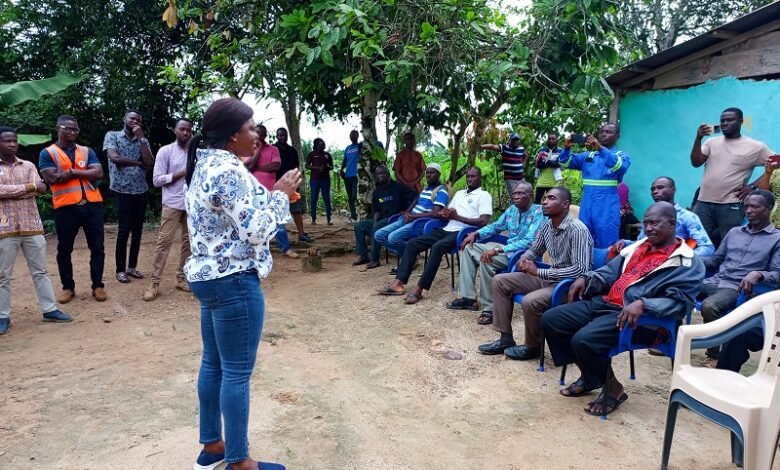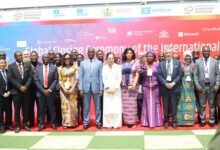
Over 25,000 hectares of poor-yielding farm lands across the country have been restored under the Ghana Landscape Restoration and Small- Scale Mining Project (GLRSSMP), aimed at ensuring improved yields in crop production towards the country’s food security.
The Minister of Environment, Science, Technology and Innovation (MESTI), Mrs Ophelia Mensah Hayford, outlined this here yesterday when she visited some farms benefiting from the Ghana Landscape Restoration and Small- Scale Mining Project (GLRSSMP) to ascertain the impact of the initiative.
The programme is an initiative of MESTI in collaboration with the Forestry Commission, the Environmental Protection Agency, the Ghana Cocoa Board, and the Ministry of Food and Agriculture.
In all, more than one million hectares of farm lands, forest and wild life protected areas had received some level of improvement under the project.
The project seeks to strengthen the integration of the country’s natural resources and its management to increase the benefits to communities in targeted savannah and cocoa forest landscape.
Mrs Hayford explained that the concept was to aid moribund farms which were not yielding any result to replant, build their capacity and also fund their activities to ensure their sustainability.
The government as part of the project, she indicated, was giving the seedlings to replant and also noted that, the visit was to assess the impact that the initiative was having on the farmers, the communities and the country in general.
Furthermore, she stated that the issue of climate change was enormous, explaining that the nation would bear the consequences if drastic measures were not adopted to combat the challenge.
Mrs Hayford said the enthusiasm from the farmers for the expansion of the project was a testament that the moribund farm could be rejuvenated to a new farm that could yield more for the sustenance of families for generations.
The project, she indicated, did not limit the kind of crops the farmers would be planting as the focus had been to restore the agricultural landscape to make it productive again.
Moreover, Mrs Hayford acknowledged the significant damage that had been done to the land through deforestation, bush burning, and other destructive human activities which had severely impacted farmers by destroying their farms.
She explained that the project aligned with the government’s broader goal of ensuring environmental sustainability while enhancing food security.
Additionally, she indicated that the project’s efforts to plant more trees, would not only help restore the ecosystem but would also contribute towards the country’s quest in achieving the tenets as stipulated in the Sustainable Development Goals (SDGs).
At Aboso community in the Twifo Atti Morkwa where the project was restoring a cocoa farm that had been cultivated for 80 years, a beneficiary, Oscar Kojovi Goka, commended the government for supporting farmers with the implementation of the project since it would enhance the sustainability of their farms.
He explained that the cocoa farm which had been there for generations and currently benefiting from the project had seen some level of improvement in terms of restoration of the landscape.
The beneficairy further said other crops being cultivated alongside the cocoa, would ensure sustainability as the farmers would be able adequately support their families with returns from the crops as well.
He called on other farmers who had not embraced the initiative to do so because of its benefit to farmers and the communities
FROM DAVID O. YARBOI-TETTEH, TWIFO PRASO







